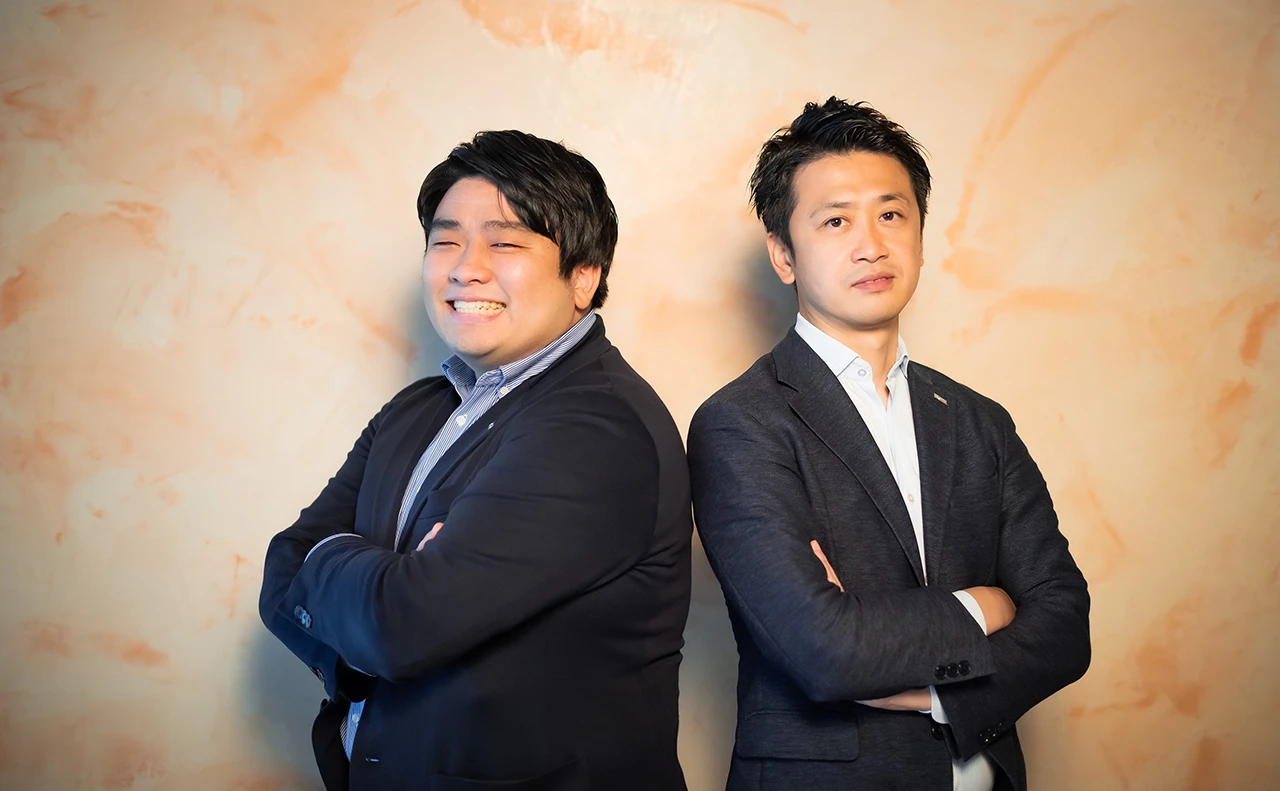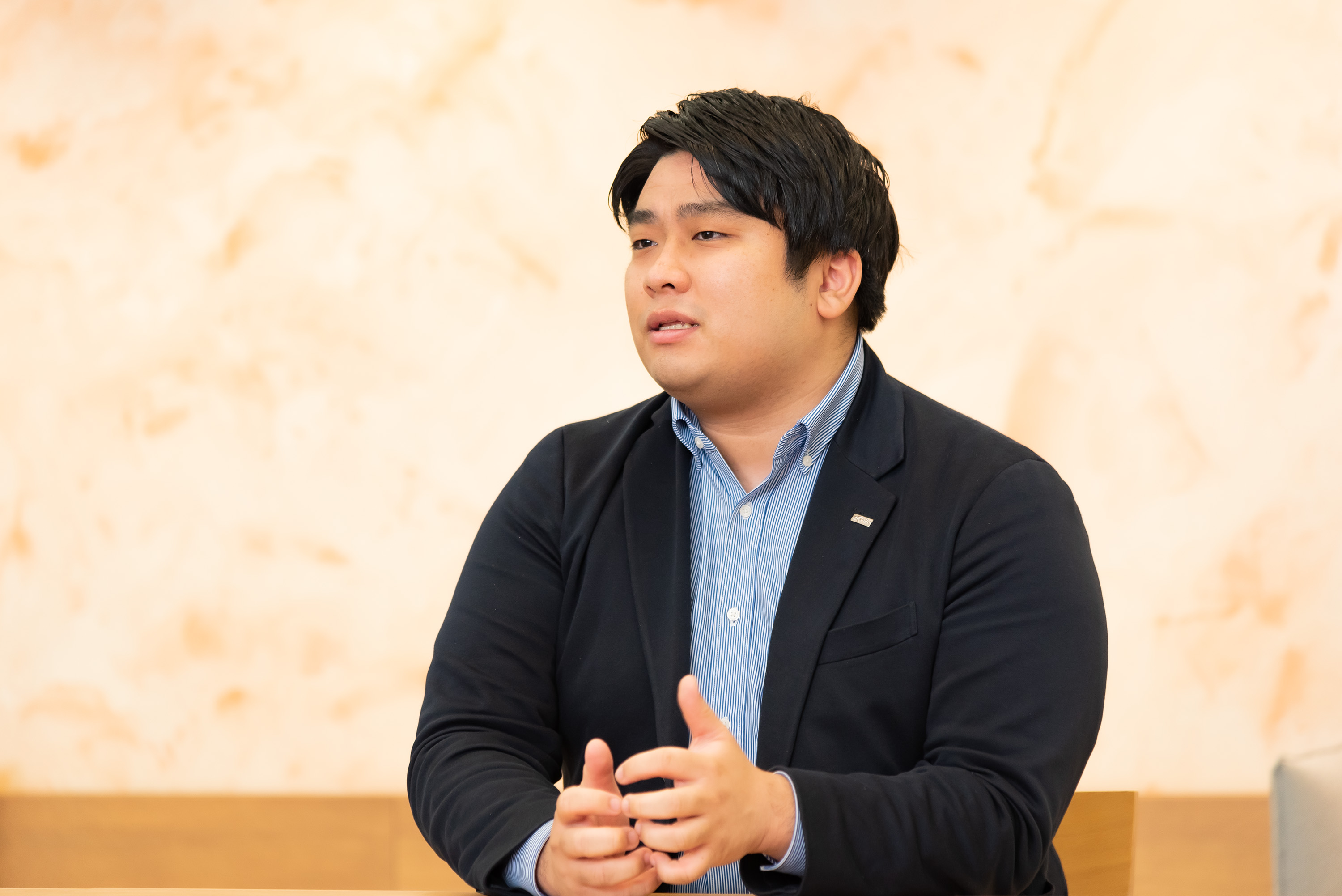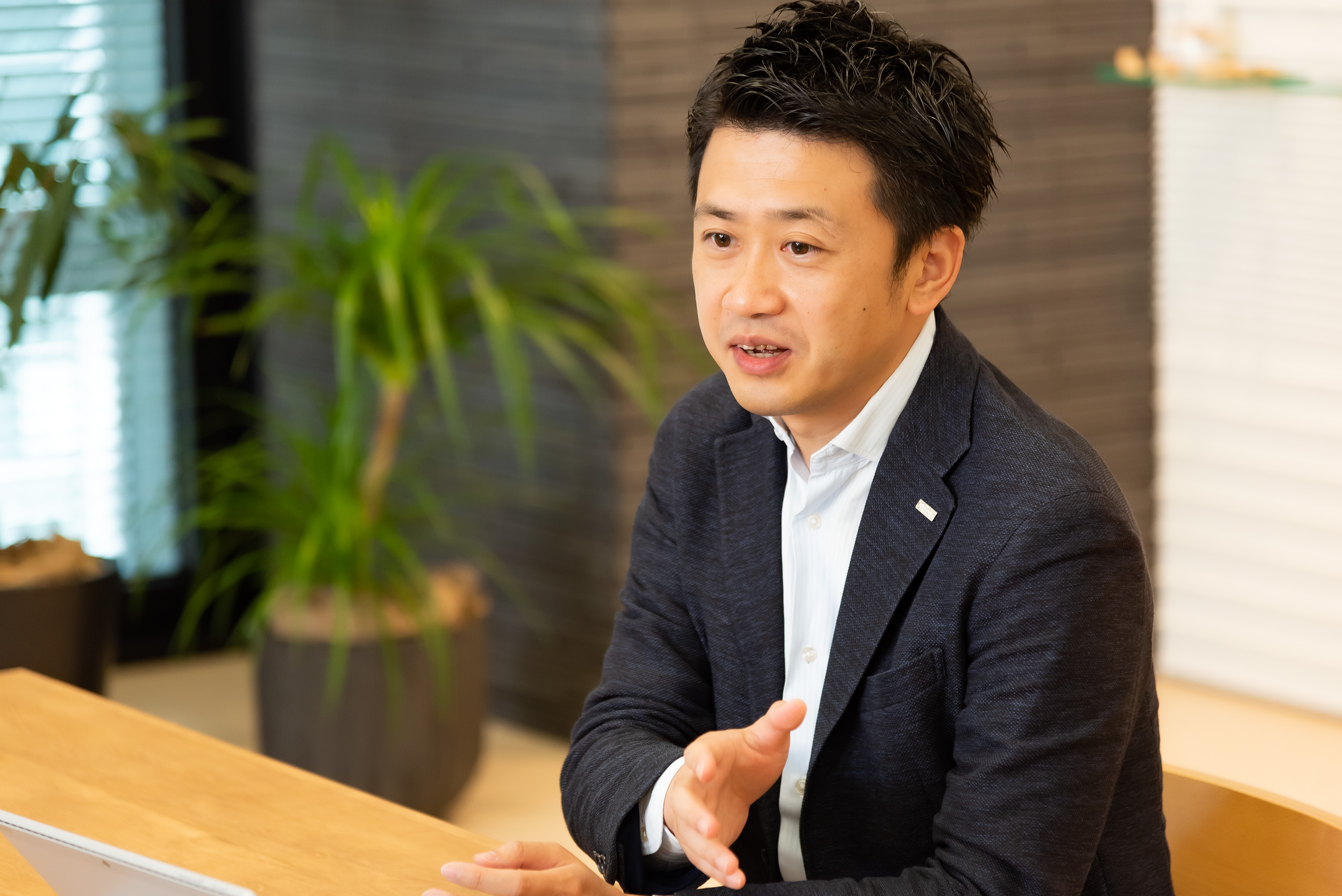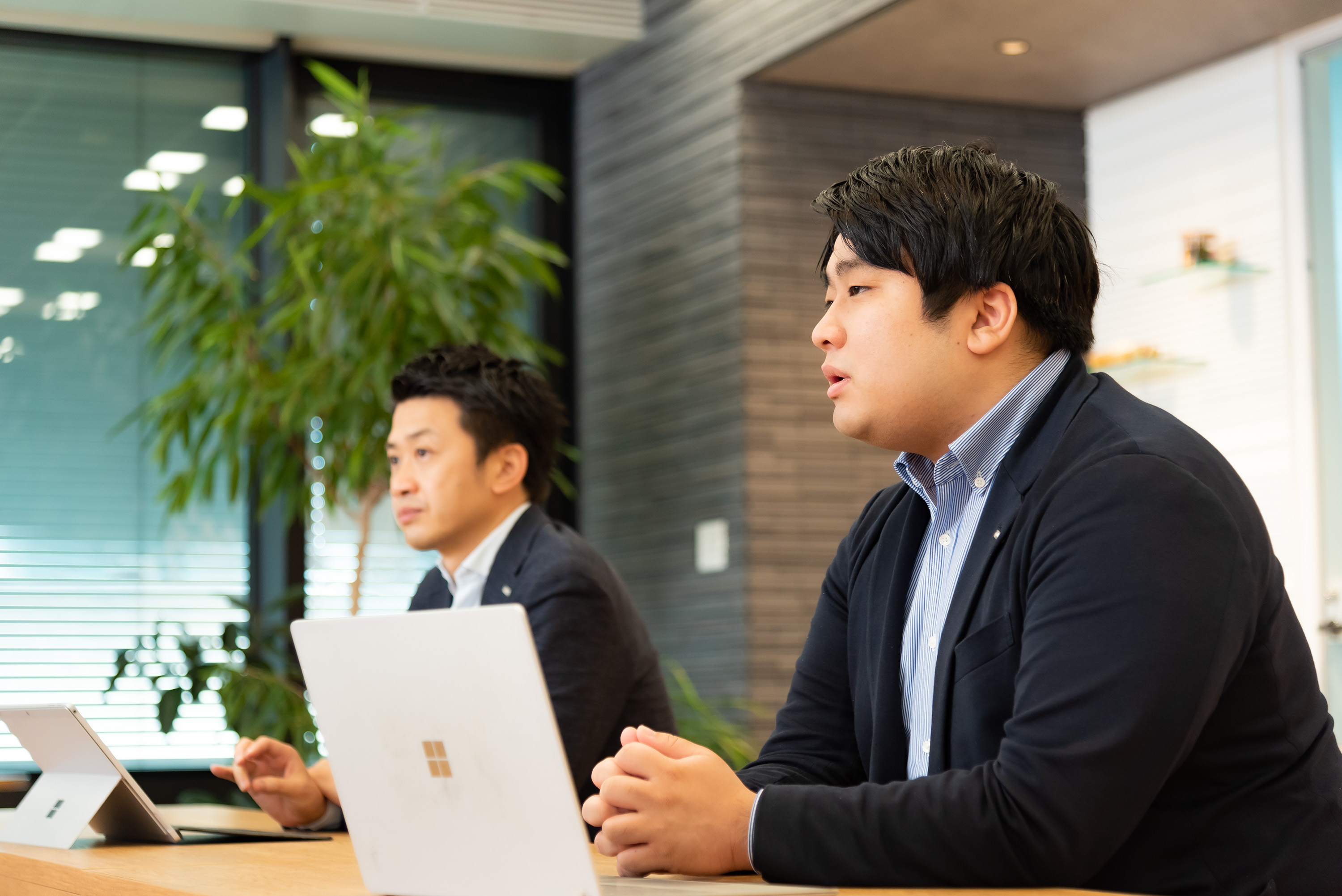Spirit of Challenge + Entrepreneurship
Koki Kiritani / GRITz Co-President & CEO
Gehua Wen / GRITz Co-President
Aug. 29, 2022

Kiritani: We established GRITz in 2022, after first proposing our idea for an esports business as part of the Hassojitz Project in 2020. Gaming was a hobby of mine, but I got quite serious about it after I bought a gaming PC with my yearly bonus that year. I originally joined Sojitz because I had an interest in business investment and entrepreneurship. The Hassojitz Project presented an opportunity to explore these interests, and I was confident that there was no one more knowledgeable about gaming than me at Sojitz—so I decided to take on the challenge and join the contest.
Wen: The first time I encountered esports was at an internet café in China. It was during the dawn of the esports industry in China. I watched as two teams of strangers formed teams and battled against each other while a crowd of excited spectators watched along around them. I distinctly remember thinking that this scene was no different from a typical sports game. For Hassojitz Project 2020, I proposed my own business idea for smart glasses, but my proposal was a bit underdeveloped, and I didn’t end up progressing to the later stages of the contest. I heard about Koki’s esports project around the same time, and volunteered when he was recruiting new team members.
Since joining Sojitz, I have been involved with our petrochemical plant and industrial robotics businesses, as well as handled the management of overseas investments. In one of my previous roles, we had a client who was involved in the production of semiconductors—and at their core, all gaming PCs and smartphones are masses of semiconductors. I decided to volunteer for Koki’s esports project after considering how the demand for semiconductors might increase along with the growth of the esports market. He and I were unacquainted with one another before I joined the esports project.
Kiritani: The overseas esports market is expanding rapidly, but the domestic market in Japan is only valued at around eight billion yen. The market in Japan is currently quite small, but it has been growing at an annual rate of 20%. Esports has around six million Japanese fans, which makes it about as popular here as pro basketball. That being said, we expect to see the number of Japanese fans rise to 14 million in 2024, which would put Japanese esports at the same scale as J.League, Japan's professional soccer league.
GRITz is still in its initial stages, and we are considering expansion into new areas including esports media, event promotion, and esports production. At the same time, we are also considering entering esports’ so-called “peripheral industries”—fields that play to Sojitz’s strengths as a general trading company. Gaming PCs are made of plastic and semiconductors—both products we handle as a trading company—and we also have the capacity to partner with business in the travel industry, which players and fans rely on to attend tournaments and other events. I think our unique position as a trading company allows us to go beyond the existing approaches prevalent in the gaming industry and link our activities there to a wide range of other businesses.
Wen: Initially, I worried about how the esports industry would react to a general trading company like Sojitz entering the world of esports. But we spoke with many people throughout our work and communicated our company’s vision of amplifying the voices of esports teams, pro gamers, and those working behind the scenes in the industry. We expressed our aim of sharing the excitement and appeal of esports with the world. Ultimately, we were actually greeted with a warm welcome. People have realized that if companies like Sojitz get involved in esports, the industry will expand, and the market will grow in scale. We have received valuable advice and even proposals for business collaborations from different members of the industry.
There was recently a large esports competition held in Iceland, and over 300,000 people in Japan tuned in to watch the livestream. People my age are reticent to admit that their hobby is gaming, but I think that gaming has become just one of the many subcultures that people in their twenties belong to today. From a business perspective, 80% of esports fans are reported to be men under the age of 35. We have direct access to this demographic through esports, and we can use a strategy that anticipates their future spending power. In other words, esports can be utilized as a marketing tool. Globally, there are many examples of major corporations sponsoring esports teams. I am confident that our involvement in esports will have a positive impact on Sojitz business at large in the future.
Kiritani: The possibilities are endless, if you consider all of the crossovers possible with esports. We could explore education, healthcare, aging societies, and regional revitalization through esports.
Wen: When we started GRITz, we wanted to create an esports event on a similar scale to soccer’s FIFA World Cup. But since beginning operations, we have received many different inquiries, and some unexpected opportunities have emerged. For example, we have already received multiple requests from companies to plan in-house esports events for their employees. We currently have a number of projects underway, and I believe our business has the potential to expand beyond our anticipated markets and customer base, rippling out into adjacent fields.
Kiritani: Since joining Sojitz, I have worked in the field of risk management, so I learned the basics of business operations from Gehua. He taught me about proper etiquette and the best ways to write business emails. When I need to ask a favor of someone in another department, Gehua is always able to connect us together smoothly. I really feel that he exemplifies what it means to be a Sojitz employee. It is such an honor that he volunteered to join our team in the Hassojitz Project, and I am grateful to have met him.
Wen: Koki is an expert when it comes to video games. I have barely played any games since I started my professional career, so he is extremely reliable when we are in business talks with people in the industry, as he speaks from a gamer’s perspective and is well versed in the newest trends in gaming.
Our company name, “GRITz,” comes from an English word meaning perseverance: “grit.” We added a “z” to the end to represent the idea of going from A to Z, or from beginning to end. So, our name represents the fact that we persevere to the very end.
As someone who worked in Sojitz’s heavy industries, I feel strongly indebted to the senior staff who have earned trust and fostered the relationships that allow GRITz to operate as we currently do. It is thanks to these senior employees who have connected us with people, financial resources, and networks that we are able to take on this exciting new challenge in the field of esports, and I am deeply grateful for their support. My aim is to continue to honor these relationships and the trust earned by our predecessors as we do our best to take GRITz to new heights.
[Related articles]



